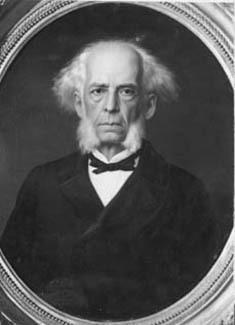Good days! is the title of the book that brings together the chronicles that Machado de Assis, under the pseudonym Boas Noites, published in News Gazette in the years 1888 and 1889. Thus, the work contains chronicles of a narrative and argumentative nature, dealing with of various subjects in the political, social and cultural field.
The texts are characterized by a ironic and realistic tone and show Brazil on the eve of the 20th century, when monarchy and slavery were coming to an end, to give way to the republic. In this context, Machado de Assis reflected on his time, without losing a rational and critical look at Brazilian society.
Read too: Dom Casmurro – one of the best-known narratives by Machado de Assis
Summary of the work Good days!
Good days! is a book of chronicles by the realist writer Machado de Assis.
They were first published in News Gazette, in Rio de Janeiro, between 1888 and 1889.
The narrative chronicles have an ironic narrator-character that is confused with the author.
The texts of the work are signed with the pseudonym Boas Noites and deal with political, social and cultural issues.
video lesson about Good days!
Analysis of the work Good days!
Characters of the work Good days!
The chronicles have variety of characters, real and fictional, but the main character is the author of them, since Machado de Assis signed them with the pseudonym (and perhaps it is correct to say “heteronym”) of Boas Noites.
Work time Good days!
The time of the chronicles are the years 1888 and 1889.
work space Good days!
The chronicles are mainly about facts that occurred in the city of Rio de Janeiro.
Read too: Sagarana – book of narratives by Guimarães Rosa
Plot of the work Good days!
The work does not have a plot, but plots, as many chronicles are narratives. As an example, we have the chronicle of May 4, 1888, in which the narrator-character writes:
“… Sorry if I don't take my hat off to you: I have a very bad cold. See; I can hardly breathe. I spend my nights with my mouth open. I even think I'm haggard and thin. No? I am: look how fungus. And it is not authoritative, mind you; ex authoritate qua fungor no sir; fungus without the slightest shadow of power, fungus for nothing...”
Next, he says that he wanted to go to the Senate, take a seat and see the “opening of the chambers” ceremony. However, due to medical recommendations, he could not carry out the plan. In addition, he also wanted to talk to Senator Castro Carreira (1820-1903). Thus, he reproduces the dialogue he intended to have with the politician from Ceará.
The chronicle of December 27, 1888 also begins with the typical irony machadiana, but here it is a characteristic of the character Boas Noites: “I thought I was the most cautious of my contemporaries. The reason is that he always leaves the house with the credo in his mouth and a willingness not to contradict the opinions of others”.
Then, mentions the Viscount of Abaeté (1798-1883), which, according to the narrator, "in recent years", if anyone said he was downcast, the viscount agreed, and if, “twenty paces later,” someone else declared him to be “rigid and robust,” he agreed. also. In this way, he satisfied everyone and wasted no time.

then the storyteller says that, days ago, when some people leaving a “republican conference”, were attacked, and there was an uproar. Victims used whistles to call the police. A little earlier, “two soldiers fought with the driver or driver of a bond”, and passengers also resorted to blowing whistles to call the police.
From then on, he began to talk about these whistles, as he never imagined “that everyone was equipped with this instrument”. By concluding that “each citizen had a whistle in his pocket”, the narrator imagines a situation in which a man, when leaving home, he tells his wife, named Florencia, that he forgot his wallet or asks his wife to see “if there are cigars in the box".
However, the narrator says that he never imagined this phrase: “— Florencia, hurry, give me the whistle!”. However, given the usefulness of the instrument, he decides to buy one. Then, starts talking about a certain executioner from Minas Gerais and reflect on his craft, so that the chronicle ceases to be narrative and turns into argumentative.
On January 13, 1889, Boas Noites declares that “if he was a thief, he would take me home, give up such a heinous vice, and go to study hypnotism. Once trained, he would go out into the street with an honest trade, and spend the rest of my days eating peacefully, without remorse or jail”.
He declares that he spent "days in the study of this new science", and imagine a situation in which you would hypnotize the Viscount of Figueiredo (1843-1917) and would ask him for “the banknotes you have in your pocket, the watch, the gold buttons and any other pet gift”. Then he would order: “Now I order you to forget everything”. And that would be just the beginning of his “practical studies”
He then goes on to say how he would behave in “the case of the poisoned girls in Niterói”. Whe concludes his text with the narration of his own death, when Saint Peter, “locksmith of heaven”, would not open the doors for him, no matter how much he told him that his actions “were pure scientific experiments”.
He would use his hypnotic techniques, and “St. Peter, master of the ecclesiastical tongue, would readily obey my hypnotic intimation, and wave his arms. But since I didn't see anything then, I would go inside; [...], he would wake up and forgive me in the name of the Lord, since he had crossed the threshold of heaven ”.
Finally, in the chronicle of August 13, 1889, the narrator recounts the dialogue he had with a “fat man”, that is, a certain Lulu Senior, who tells him to be a “candidate for the temporary Chamber”. For Lulu Sr., you have to be thin to work in the Chamber, as his “athletic form obviously calls for the Senate”.
The narrator says he has no ideas, “neither political nor otherwise”. However, the interlocutor sees this as an advantage, as “not having them is half the battle”. The important thing, according to him, is having friends. And he states that “the whole point is to meet the voter's sentiment, that is, that he does you a favor by voting; he does not choose a representative of his interests ”.
In this way, the chronicles of the book Good days!, both narrative and argumentative, are full of irony and deal with political, social and cultural issues. Therefore, they paint a portrait of Brazil in the 19th century, when the monarchy came to an end to give way to the republic.
narrator of the work Good days!
The narrator of narrative chronicles is their author, that is, the good night character, which is confused with Machado de Assis. É, therefore, a narrator-character extremely critical, which analyzes the facts and customs of his time.
Characteristics of the work Good days!
To the 49 chronicles from the book Good days! speak of various matters relating to the years 1888 and 1889. The first of them is dated April 5, 1888, the last, August 29, 1889. Some are narratives, others are argumentative.. In any case, they show realistic, Machado's unmistakable irony, in addition to the dialogue with the reader.
Machado de Assis

Machado de Assis (Joaquim Maria Machado de Assis) was born on June 21, 1839, in Rio de Janeiro. He was the son of the Brazilian Francisco José de Assis (1806-1864) and the Azorean Maria Leopoldina Machado da Câmara (1812-1849). Of poor origin, he and his parents were aggregated at Quinta do Livramento, which belonged to the writer's godmother.
Later, the novelist, poet, storyteller and chronicler worked as an apprentice typographer, proofreader and civil servant. Furthermore, introduced the realism in Brazil with your work The Posthumous Memoirs of Bras Cubas, in 1881. Furthermore, was one of the founders of the Brazilian Academy of Letters and its first president, before dying on September 29, 1908, in Rio de Janeiro. To learn more about the life and work of this great Brazilian author, read the text: Machado de Assis.
historical context of Good days!
In 1850, the LHey Eusébio de Queirós prohibited the slave trade in Brazil. As early as 1871, the Lhey from Free Womb he was to guarantee the freedom of every child born to an enslaved woman thereafter. Later, in 1885, the Sexagenarian Law freed all enslaved people over 60 years of age. Finally, in May 13, 1888, Princess Isabel signed the Lhey aurea, which put an end to slavery in Brazil.
This important historical fact also announced the end of the Brazilian monarchy., which ceased to exist on November 15, 1889, with the Proclamation of the Republic. It is, therefore, in this context of political and social changes that the chronicles of the book are inserted. Good days!, first published in News Gazette, in Rio de Janeiro.
image credit
[1] Unicamp publisher (reproduction)
By Warley Souza
Literature Teacher

